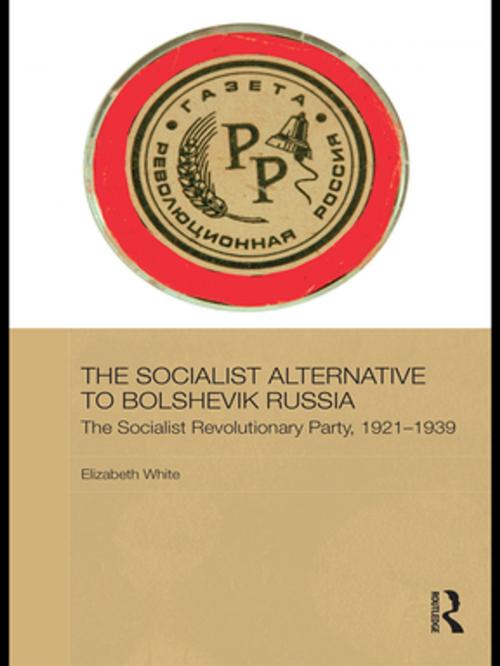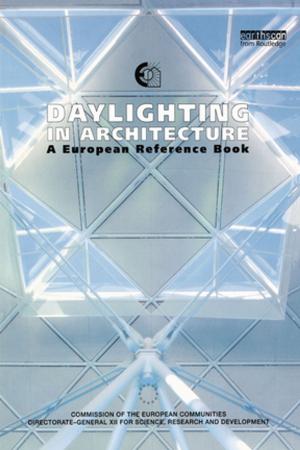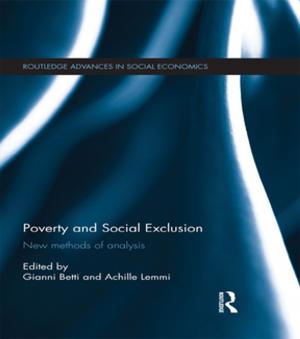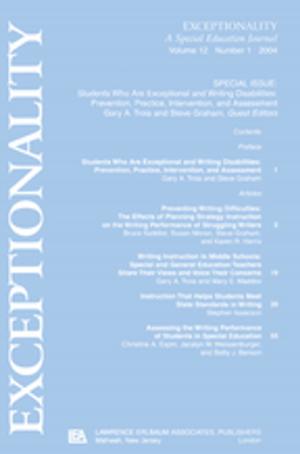The Socialist Alternative to Bolshevik Russia
The Socialist Revolutionary Party, 1921-39
Nonfiction, Social & Cultural Studies, Social Science, Anthropology, Political Science| Author: | Elizabeth White | ISBN: | 9781136905728 |
| Publisher: | Taylor and Francis | Publication: | October 8, 2010 |
| Imprint: | Routledge | Language: | English |
| Author: | Elizabeth White |
| ISBN: | 9781136905728 |
| Publisher: | Taylor and Francis |
| Publication: | October 8, 2010 |
| Imprint: | Routledge |
| Language: | English |
The Socialist Revolutionary party, which had been the largest and most popular party in Russia in 1917, did not after the October Revolution just disappear into the "dustbin of history", as Trotsky hoped, but – led by its leadership in exile in the 1920s and 1930s – continued to observe and comment on developments in Russia.
In emigration, the Socialist Revolutionary (SR) party often put forward policy proposals on a wide range of topics: policies which, based on a shrewd understanding of the real situation in Russia, offered realistic alternatives to the policies being pursued by the Marxist Bolshevik regime. This book fills a gap in examining one of the most significant Russian political parties, and is based on extensive original analysis of SR party materials, shows how it operated; how it formulated and disseminated its ideas; what these ideas were, and how the party's ideas developed in response to changing circumstances in Russia and Europe more widely. Far from being the agrarian Slavophile romantics as they are often portrayed, this book shows the SRs were energetic European modernisers who contributed vigorously to the leading debates of their day; it also shows how the SR vision of a populist, socialist regime failed to materialise as state control, dictatorship and the collectivisation of agriculture took hold.
The Socialist Revolutionary party, which had been the largest and most popular party in Russia in 1917, did not after the October Revolution just disappear into the "dustbin of history", as Trotsky hoped, but – led by its leadership in exile in the 1920s and 1930s – continued to observe and comment on developments in Russia.
In emigration, the Socialist Revolutionary (SR) party often put forward policy proposals on a wide range of topics: policies which, based on a shrewd understanding of the real situation in Russia, offered realistic alternatives to the policies being pursued by the Marxist Bolshevik regime. This book fills a gap in examining one of the most significant Russian political parties, and is based on extensive original analysis of SR party materials, shows how it operated; how it formulated and disseminated its ideas; what these ideas were, and how the party's ideas developed in response to changing circumstances in Russia and Europe more widely. Far from being the agrarian Slavophile romantics as they are often portrayed, this book shows the SRs were energetic European modernisers who contributed vigorously to the leading debates of their day; it also shows how the SR vision of a populist, socialist regime failed to materialise as state control, dictatorship and the collectivisation of agriculture took hold.















